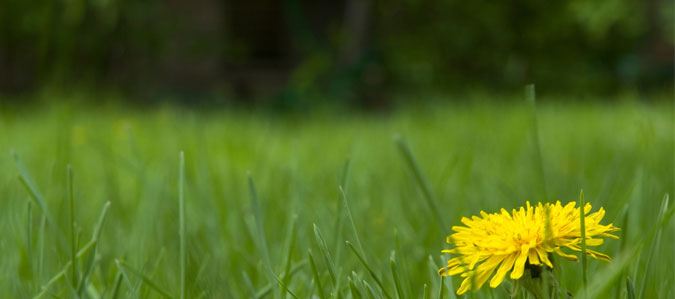Why Is Mowing the Right Height and In Alternating Patterns Important?
When it comes to lawn care, there’s a lot to know. While some homeowners and business managers may take their lawn for granted, you shouldn’t if you want your property to look its very best. Even if you don’t plan to sell your Northwest Indiana property any time soon, maintaining your lawn can make the view out your window more rewarding and satisfying.
If you’re not intimately familiar with lawn maintenance, you may not realize how important the height of your grass and your lawn mowing patterns are to the health of your lawn. To keep your lawn in great shape, it’s vital to learn the significance of grass height and your grass cutting habits.
What Is the Proper Height to Cut Your Grass?
Unfortunately, you won’t find a one-size-fits-all answer for the height to cut grass. That’s because the appropriate height will vary by grass type, season and growing region. The weather may also influence the height at which you maintain your grass. If your area experiences a drought, for example, it might be advisable to let your grass grow longer than you would otherwise.
Generally, though, there are two types of grass: cool-season grass, which grows most prolifically when it’s cooler outside during the spring and fall, and warm-season grass, which grows the most in the summer when it’s hotter. No matter what kind of grass you have and regardless of the season, there is a rule of thumb you can use to keep your grass at the right height — never mow off more than a third of your grass’ height at a time. In general, warm-season grasses should be left between 0.5-4.0 inches high, while cool-season grasses should be between 0.75-4.0 inches in height. Let your grass grow one-third above its ideal height between cuts.
Recommendations for Spring, Summer, Fall and Winter
Whether your grass is cold season or warm season, it’s advisable to let it reach a greater height during the summer and times when your area experiences a drought.
If you have warm-season grass, it’s wise to cut it shorter during the spring. This will remove dead blades of grass from your lawn. You should also cut your grass shorter in the fall if you have cool-season grass. This is particularly important if you live in an area that experiences snow in the late fall or winter because shorter cool-season grass is less vulnerable to snow mold.
Why Grass Height Is Important
Maintaining your grass at the appropriate height is important for a number of reasons. If your grass is too short, your lawn may suffer damage from the heat, and it may be susceptible to weeds. When the grass is too tall, your lawn may become home to insects, mice or snakes. In addition, grass that’s too long is more difficult and labor-intensive to mow.
Why Moving in Alternating Patterns Is Important
Just like grass height is important to the appearance and health of your lawn, so are your grass cutting patterns. It’s crucial for you to alternate your lawn mowing patterns to prevent your grass from growing in just one direction. When grass grows in a single direction, it can make a lawn look unsightly overall. It can also make mowing increasingly hard. An added advantage of alternating your grass cutting patterns is that it will hide your mower’s wheel tracks, which is a particular concern for many people who use riding mowers.
Here are some popular lawn mowing patterns you may want to try at your location:
- Zamboni pattern
- Alternating stripes
- Rings around your yard
The key to employing a mowing pattern effectively is to start your next cutting in a position that’s perpendicular to where you began your previous mow.
Contact RLM for Your Lawn Care Needs
If you want a great-looking lawn that’s maintained at the ideal height year-round, leave your lawn care and maintenance in the capable hands of our experienced specialists. Contact Ricci’s Landscape Management for a quote today!








